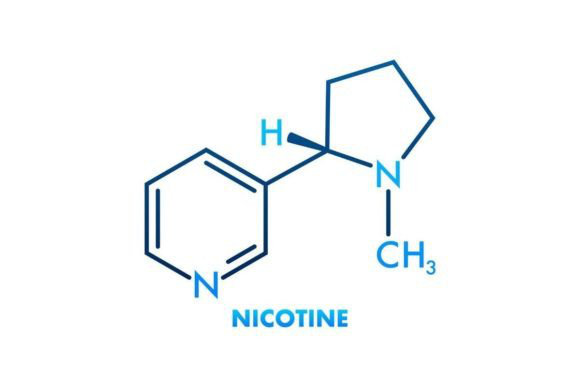Can Modafinil and Nicotine Work Together?
The idea of combining modafinil, a prescription wakefulness medication, with nicotine, a stimulant found in tobacco and replacement therapies, has drawn interest for potential effects on focus, smoking cessation, and brain protection. While some studies explore these interactions, the evidence is still limited, and safety concerns remain important.
What Is Modafinil?
Modafinil is a prescription medication used to treat excessive daytime sleepiness caused by narcolepsy, obstructive sleep apnea, and shift work disorder (U.S. Food and Drug Administration, 2015). Off-label, it is sometimes used as a cognitive enhancer, though this is not an FDA-approved use.
Modafinil works by blocking dopamine reuptake and affecting brain systems like orexin and glutamate (Greenblatt & Adams, 2023). Common side effects include headache, insomnia, and anxiety. Rare but serious risks include severe skin reactions and psychiatric effects. It can also reduce the effectiveness of hormonal contraceptives for up to one month after use (U.S. Food and Drug Administration, 2015).
Although it has a lower abuse potential compared to amphetamines, cases of misuse and dependence have been reported (Greenblatt & Adams, 2023).
What Is Nicotine?
Nicotine is a naturally occurring stimulant found in tobacco. It activates nicotinic acetylcholine receptors, leading to dopamine release and short-term improvements in attention and mood.
Nicotine itself is not the main cause of cancer; the cancer risk comes primarily from other chemicals in tobacco smoke (Greenblatt & Adams, 2023). Nicotine replacement therapies such as gum and patches are considered safe and effective for smoking cessation when compared to cigarettes (U.S. Food and Drug Administration, 2015).
However, nicotine is highly addictive and can raise heart rate and blood pressure. Side effects of replacement products may include nausea, dizziness, and sleep disturbance.
What Happens When Modafinil and Nicotine Are Combined?
Human Studies
In a controlled study of abstinent smokers, combining modafinil with nicotine increased feelings of energy but did not reduce nicotine withdrawal or cravings. Modafinil alone improved attention, but both substances together raised heart rate and blood pressure (Martin et al., 2014).
Another clinical trial tested modafinil as a smoking cessation aid and found no benefit. In fact, modafinil was associated with worse withdrawal symptoms and higher cigarette use compared to placebo (Schnoll et al., 2008).
Animal Studies
In rats exposed to the neurotoxic effects of MDMA, a combination of modafinil and nicotine reduced neuronal damage and oxidative stress. These findings suggest possible neuroprotective effects, but they remain unproven in humans (Kowsari et al., 2021).
Potential Benefits
- Cognition: Modafinil may improve sustained attention, while nicotine produces short-term increases in alertness. Together they may temporarily boost energy, though human data are limited (Martin et al., 2014).
- Smoking cessation (theory vs evidence): While modafinil was considered for reducing fatigue and weight gain during nicotine withdrawal, clinical evidence shows it does not improve quit rates and may worsen symptoms (Schnoll et al., 2008).
- Neuroprotection: Animal research suggests protective effects against MDMA toxicity, but this has not been confirmed in people (Kowsari et al., 2021).
Risks and Safety Concerns
- Cardiovascular: Both nicotine and modafinil can increase blood pressure and heart rate. This may be unsafe for people with hypertension, arrhythmias, or heart disease (Martin et al., 2014).
- Addiction: Nicotine carries a very high risk of dependence. Modafinil has lower risk but can still be misused (Greenblatt & Adams, 2023).
- Other side effects: Insomnia, anxiety, nausea, dizziness, and psychiatric symptoms may occur. Rare but serious rashes have been reported with modafinil (U.S. Food and Drug Administration, 2015).
- Drug interactions: Modafinil may interfere with hormonal contraceptives and other medications metabolized by the liver.
Practical Considerations
If someone is considering these substances:
- Consult a healthcare professional before use.
- Avoid smoking; nicotine patches, gum, or lozenges are safer delivery methods.
- Monitor cardiovascular health, especially blood pressure and heart rate.
- Be cautious with other medications, especially hormonal contraceptives.
- Stop immediately if experiencing chest pain, severe rash, or mood changes.
Conclusion
The combination of modafinil and nicotine has been studied in small human trials and in animals. Findings suggest possible increases in energy and attention but also clear cardiovascular strain and no benefit for smoking cessation. Neuroprotection findings are limited to animal research.
At present, this combination should not be used for smoking cessation or cognitive enhancement outside of research. The risks of nicotine dependence and cardiovascular effects outweigh any unproven benefits.
Frequently Asked Questions
Can I take modafinil at night?
No. Modafinil is designed to promote wakefulness and can cause insomnia if taken late in the day (U.S. Food and Drug Administration, 2015).
Does nicotine replacement carry the same risks as smoking?
No. Nicotine replacement therapies are considered far safer than smoking because they do not contain tobacco carcinogens. However, they can still cause side effects like nausea and increased heart rate (Greenblatt & Adams, 2023).
Does modafinil help people quit smoking?
No. Clinical trials show that modafinil does not improve quit rates and may worsen withdrawal symptoms (Schnoll et al., 2008).
Is there evidence that modafinil and nicotine protect the brain?
Only in animal studies. In humans, no evidence confirms neuroprotective effects of the combination (Kowsari et al., 2021).
References
- U.S. Food and Drug Administration. (2015). PROVIGIL® (modafinil) tablets, for oral use, C-IV [Prescribing information]. U.S. Department of Health and Human Services. https://www.accessdata.fda.gov/drugsatfda_docs/label/2015/020717s037s038lbl.pdf
- Greenblatt, K., & Adams, N. (2023). Modafinil. In StatPearls [Internet]. StatPearls Publishing. https://www.ncbi.nlm.nih.gov/books/NBK531476/
- Schnoll, R. A., Wileyto, E. P., Pinto, A., Leone, F., Gariti, P., Siegel, S., Perkins, K. A., Dackis, C., Heitjan, D. F., Berrettini, W., & Lerman, C. (2008). A placebo-controlled trial of modafinil for nicotine dependence. Drug and Alcohol Dependence, 98(1–2), 86–93. https://doi.org/10.1016/j.drugalcdep.2008.04.008
- Martin, C. A., Lile, J., Guenthner, G., Anestis, J. C., Batten, S. R., & Kelly, T. H. (2014). Behavioral effects of modafinil and nicotine, alone and in combination, in tobacco-deprived young adult smokers. Journal of Clinical Psychopharmacology, 34(2), 278–281. https://doi.org/10.1097/JCP.0000000000000080
- Kowsari, G., Mehrabi, S., Soleimani Asl, S., Pourhamzeh, M., Mousavizadeh, K., & Mehdizadeh, M. (2021). Nicotine and modafinil combination protects against the neurotoxicity induced by 3,4-methylenedioxymethamphetamine in hippocampal neurons of male rats. Journal of Chemical Neuroanatomy, 116, 101986. https://doi.org/10.1016/j.jchemneu.2021.101986








